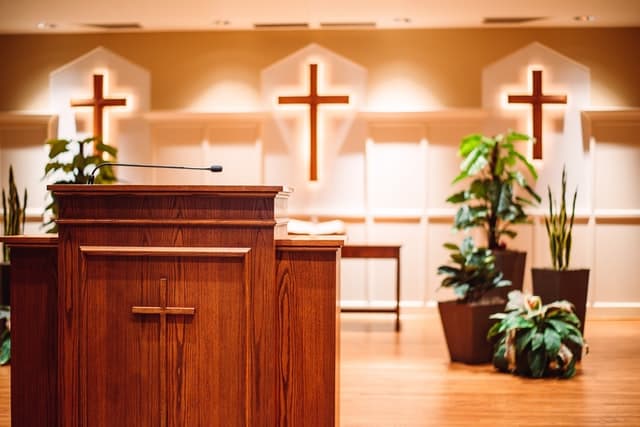 |
| Photo by Mitchell Leach on Unsplash |
When Christians attend church, they often assume everyone present shares their beliefs. They rarely consider that some of the attendees are atheists. This isn't limited to the other congregants either. Some members of the clergy are atheists too. That's right, your pastor might be an atheist!
Many atheists living in the United States are ex-Christians. Most of us spent our childhoods undergoing religious indoctrination. When you stop and think about it, it is remarkable that we managed to overcome this limitation. The process of transitioning from believing Christian to atheist took me a few years. It was anything but easy. It was something I did because I had to and not something I ever wanted for myself.
The Clergy Project
If you've never heard of The Clergy Project, you should check them out. They provide a safe online community for religious leaders without supernatural beliefs. They've been at it since 2011. Thanks to their efforts, it is clear that some atheists were (or still are) members of the clergy. Some have continued to serve this role even after realizing they no longer believe in gods.
As hard as the deconversion process was for many of us, I'm sure it must have been more difficult for clergy. Not only was a core part of their identity on the line, but their career was at risk too. It is tough to imagine how they navigated that. I'm happy to hear that they don't have to do so alone.
We don't hear enough about clergy who no longer believe in the god(s) they claim to represent. And for obvious reasons, we don't hear enough from them either. For an exception, see this post from Rational Doubt. I know some leave their positions after losing their faith, but it would be a mistake to think this is true for all.
I know that many of us work at jobs we don't enjoy. Some of us may even do things as part of our jobs in which we no longer believe. But it is hard to imagine that this gives us an accurate idea of what they go through. How tough must it be to deliver a sermon about a god in which one no longer believes?
The Clergy Project provides them with a platform where they can express themselves. They can interact with others who have been through similar situations. They can learn how others have navigated the challenges they are now facing. This seems like a valuable resource, and I'm glad to know it is there.
Secular People Doing Good
It is easy to get bogged down in all the awful things taking place in our modern world. War, the climate crisis, ongoing political dysfunction, and so on. The Clergy Project is an example of secular people working together to do good. I was especially impressed with their description of their diversity:
In our Online Community of Forums, participants come from a wide range of religious and cultural backgrounds, including Islam, Judaism, Buddhism, Hinduism, Scientology, and more than thirty different segments of Christianity. Our participants reside in forty-nine states in the USA and more than fifty different countries around the globe.
Let this be the sort of uplifting reminder some of us need right now. When we secular folks put our minds to it and are willing to set aside our differences, we can do some good.
What Else Can We Do?
We can undo at least some of the damage caused by religion. We can support those who need it. We can work to preserve the rights always under assault by religious fundamentalists. We can strengthen the separation of church and state through secular activism. We can inform the public about atheism and correct misconceptions. Each of us can be a voice against bigotry, even when it is justified by religion.
And what if we could manage to come together and put our numbers to use? What if we could set aside our trivial differences and work toward our collective good? Imagine what we could accomplish then!
This post from 2018 was expanded in 2022 in an effort to highlight the good work The Clergy Project is doing.